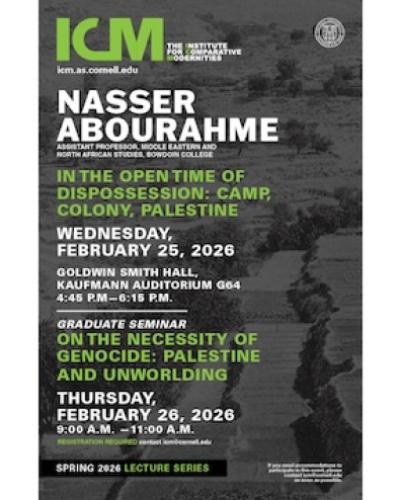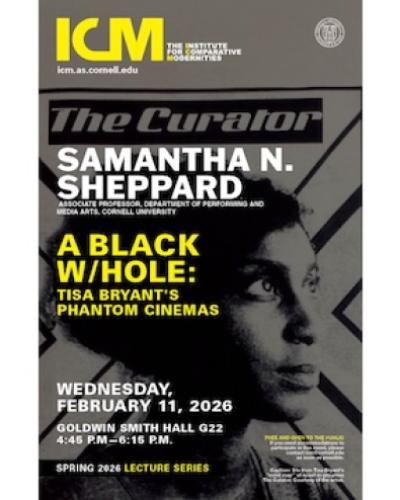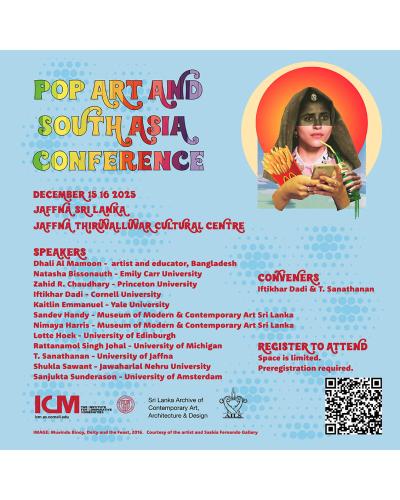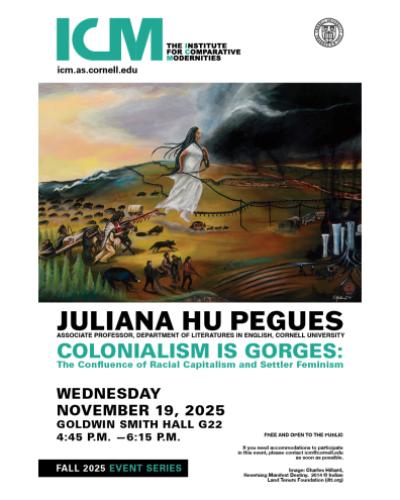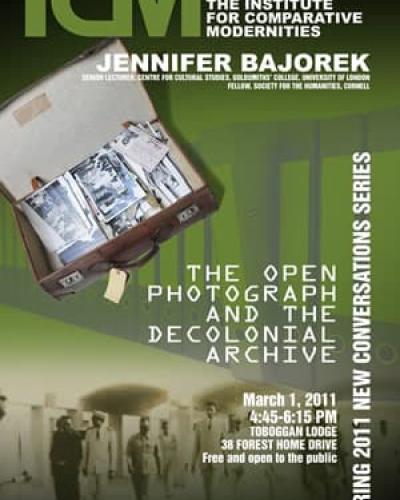Toboggan Lodge, Cornell University
JENNIFER BAJOREK (Senior Lecturer, Centre for Cultural Studies, Goldsmiths’ College, University of London Fellow, Society for the Humanities, Cornell)
The photographic archives of whole generations and historical epochs are currently undergoing processes of deterioration and destruction. Where these processes have been noticed, they have often given rise to nostalgia and “salvage” imperatives: there is not enough cold storage in the world. At the same time, this view is beholden to a post-Enlightenment fantasy, in which it is presumed that all knowledge can be catalogued, all documentation preserved. In my recent research—a series of linked writing, teaching, and practical projects on photography in several cities in Africa—I have focused on the necessity and possibility of inventing a new relationship to the image archive: one that would be, precisely, wary of this experience. I have been particularly interested in exploring approaches to photography and photographic archives that would do away with the distinction between colonial and postcolonial archives, and re-organize the division, distribution, and control of collective, cultural, or public memory along trans-national lines. For a long time, we have known that photography’s specificity is due in part to its radical openness: it is in some sense always open, public, and allows the public to migrate across radical distances in space and time. Currently, state structures and national cultural policies/politics in all parts of the world are insufficient to address and work with this openness. How to frame a politics of the archive that would engage fully with the realities of contemporary geopolitics? Is there a specificity of the image archive in postcoloniality? How to create new forms of institution, adapted to photography, and capable of taking its openness, its power to create new forms of publicity and of memory, into account? In this presentation, I will discuss these ideas in tandem with a series of practical projects concerned with the creation of actual physical and/or digital repositories of photographic archives in Africa.
Jennifer Bajorek is Senior Lecturer in Cultural Studies at Goldsmiths’ College, University of London, and a research fellow in the Society for the Humanities at Cornell University for the 2010-11 academic year. Since receiving her Ph.D. in Comparative Literature from the University of California, Irvine, in 2002, she has written and published on a broad array of topics in literature, philosophy, and critical theory, and on photography and photography theory. Her publications include Counterfeit Capital: Poetic Labor and Revolutionary Irony (Stanford, 2009); with Eric Trudel and Charlotte Mandell, an edition and translation of the literary theory and political writings of Jean Paulhan, On Poetry and Politics (Illinois, 2008); translations of Sarah Kofman, Bernard Stiegler, and Jacques Derrida; and essays in Critical Inquiry, Diacritics, History of Photography, Aperture, and the newspaper of Autograph ABP (Association of Black Photographers). Most recently, she co-edited (with Vikki Bell) a special section of Theory Culture & Society on “Photography and the State.” For the past several years, her research has focused on aesthetic and political dimensions of photography. In addition to a book on the Bamako photography biennial, co-authored with Erin Haney, she is writing a book on photography and political imagination in Senegal and the Republic of Benin.

